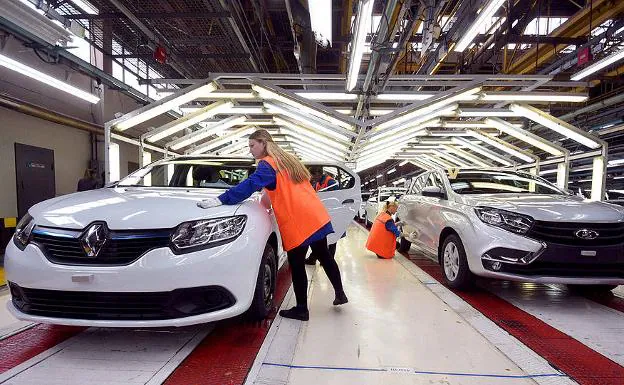Renault has paralyzed the operations of its factories in Russia , its second largest market after Europe — it accounts for 18% of its total sales volume —, due to the Russian offensive in Ukraine, which has stopped production and, for now, adds more than 150,000 refugees outside the invaded country.
The auto industry has been further hampered by bottlenecks at the Russian border, which are delaying parts deliveries. For this reason, the Renault assembly factory has stopped operations, in the same way that AvtoVaz has done in Toliatti, in the south of the country.
Versions of the Captur and Duster for that market are manufactured in Moscow , while Lada vehicles come out of the Tolyatti lines.
On the other hand, Volkswagen will also stop production at its German factories in Zwickau and Dresden for a few days in early March, according to Europa Press. Although Germany has not been involved in the fighting, its plants rely on electrical cables that are made in Ukraine.
According to data from the German manufacturers’ association, VDA, German automotive companies have 49 production centers in Russia and Ukraine, and the consequences for them and their employees “are not entirely clear.”
Finnish tire manufacturer Nokian said it would shift the manufacturing of some of its key products from Russia to Finland and the US , as a precautionary measure to avoid sanctions on Russian products.
Ford, for its part, has a ‘joint-venture’ with Ford Sollers, which has three factories in Russia . In a statement, the US company said it was “deeply concerned about the situation” and that it would “manage the effects of the crisis in real time.”
Another company indirectly related to the auto industry is the steel company Nippon Steel, which stated last Friday that it would look for a supply alternative, given that 14% of its raw materials come from the two countries in combat.

